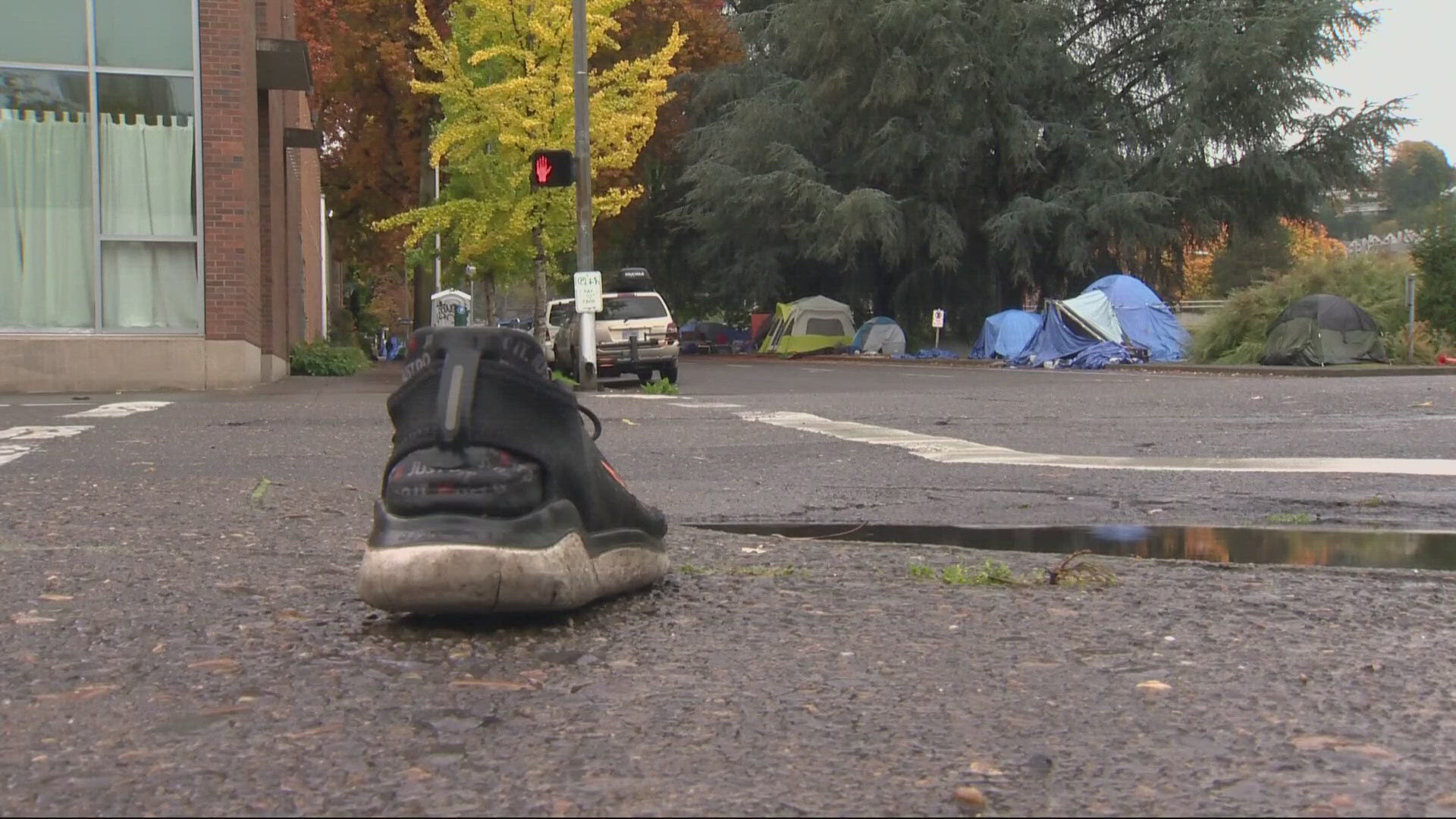OREGON, USA — Since Gov. Tina Kotek’s first day in office, addressing the homeless crisis has been a major focus. She declared a homelessness state of emergency her first day as governor and extended it indefinitely a year later.
On Thursday, Kotek released housing goals from an online dashboard that were reached last year under her housing initiative, along with what she's expecting to do by the end of 2025.
Under the governor's emergency initiative between January and June of this year, nearly 3,000 people were prevented from sleeping on the streets, and more than 500 were housed, including 72 in Multnomah County. The goal for Multnomah County was 100. The data also shows under this initiative, no one was housed in several counties, including Washington and Clackamas.
A spokesperson for Washington County's Housing Services Department told KGW the reason the dashboard shows no one was housed in Washington County was because they ran out of state funds which they used to house more than 700 people last year. They received more funding this past summer and are working to house 60 households with that additional money.
"We are reassessing on a regular basis with all of our communities to hit their goals … to make sure they understand their needs to hit those goals," Kotek said.
Multnomah County Chair Jessica Vega Pederson sent KGW the following statement regarding these efforts:
"Multnomah County is grateful for the funding provided by the State of Oregon and Gov. Tina Kotek. This funding is supporting our ongoing work of sheltering, housing, and providing eviction prevention services to thousands of people each year. This is a perfect example of the momentum we can build when we do this work with collaboration and urgency — across governments and with our partners.
"Multnomah County's homelessness work is supported by multiple funding streams: state funding, federal funding, the Supportive Housing Services Measure, and City of Portland and Multnomah County general funds. Between July 1, 2023, and June 30, 2024, across all funding streams, the Joint Office of Homeless Services supported 5,477 people in leaving homelessness for housing, and served 9,101 people in shelter. In partnership with the Department of County Human Services, the County provided eviction prevention services to 13,267 people in that same time frame. With nine months to go, we are confident we'll hit our goals for this initiative."
During Thursday’s news conference, Kotek also pointed to what she's expecting to do by the end of 2025, with the major takeaways:
- 2,400 or more existing shelter and navigation beds will be maintained
- 1,700 or more new shelter beds
- 2,700 or more households rehoused
- 24,000 or more households prevented from homelessness
- 2,800 or more affordable housing units produced
"Those numbers are real numbers. Those are real people's lives. That is how government is coming together from top to bottom to make progress here in Oregon," Kotek said. "This is not a victory lap; this is not a 'mission accomplished' moment. This is a progress point … and we still have a lot of folks who need help, and we're headed in the right direction."
She was talking about folks like Danielle, 15 weeks pregnant and addicted to drugs and alcohol on the streets of Portland.
“It's hard to get anywhere because you're ashamed of yourself … it's not our governor's fault that our society is what it is today. It's how we were raised, but it is our society; it is what we vote for and what we accept and allow," Danielle said.
Kotek said she would push the state legislature during this next budget cycle, one she noted would be challenging, on continuing to fund these housing efforts.
The conversation Thursday also touched on issues such as tent and tarp distribution, a controversial harm reduction effort in Multnomah County and one that Portland officials have tried to limit in the past. Currently, Multnomah County’s budget allocates $700,000 taxpayer dollars for harm reduction supplies, including tents and tarps.
Homeless people have said those materials are critical to their survival.
"Sometimes, that's what people need. The ultimate goal is not the tent and tarp ... that is a mechanism to get folks … this is a continuum conversation," Kotek said. "I think where we go wrong is if we only think it is about the tent and tarp; that is the beginning part of getting some stability, and that is really a local decision depending on … I would rather have folks get the outreach and the shelter."
KGW's Blair Best asked Kotek about the state law that requires cities to remove homeless camps only when there is available shelter. It's a law Portland Mayor Ted Wheeler has called on the governor to change in the past, arguing it makes it difficult for Portland to keep its street clear of camping because the city does not have enough shelter beds for everyone experiencing homelessness.
Kotek stressed she expects cities to follow that law but would review proposed changes if they were presented to her.
"If people want to come to the legislature to have conversations about changing the law, I will certainly review those. I think people need to say what they want to say before I can make that happen," Kotek said.

